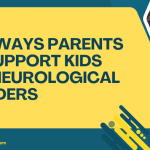Top 5 Insights on Pediatric Neuro Rehabilitation
Insight 1: Importance of Early Intervention
Early intervention is crucial for maximizing recovery in pediatric patients.
Insight 2: Family Involvement
Engaging family members in the rehabilitation process enhances support.
Insight 3: Multidisciplinary Approach
A team of specialists can provide comprehensive care tailored to the child’s needs.
Insight 4: Innovative Therapies
Utilizing new technologies and therapies can improve outcomes.
Insight 5: Long-term Follow-up
Ongoing assessment and follow-up are essential to ensure sustained progress.
Table of Contents
- Understanding Pediatric Neuro Rehabilitation
- The Role of a Multidisciplinary Team
- Types of Therapies Involved
- Setting Goals and Measuring Progress
- Family Involvement and Support
Understanding Pediatric Neuro Rehabilitation
Pediatric neuro rehabilitation is a specialized area of therapy focused on helping children recover from neurological injuries or conditions. Whether it’s due to traumatic brain injuries, strokes, cerebral palsy, or developmental disorders, neuro rehabilitation aims to improve functional abilities and enhance quality of life.
Children’s brains possess remarkable adaptability, a property known as neuroplasticity. This means that with appropriate intervention, they can often overcome challenges that may seem insurmountable.
A study published by the American Academy of Pediatrics highlights the effectiveness of early intervention in promoting recovery.
During rehabilitation, children engage in various activities tailored to their specific needs, fostering improvements in motor skills, cognitive functions, and daily living skills. The journey is unique for every child, but understanding what to expect can empower families and caregivers.
The Role of a Multidisciplinary Team
One of the most crucial aspects of pediatric neuro rehabilitation is the involvement of a multidisciplinary team. This team typically consists of various specialists, including:
| Specialist | Role in Rehabilitation |
|---|---|
| Pediatric Neurologist | Diagnoses and treats neurological conditions |
| Physical Therapist | Focuses on improving mobility and physical strength |
| Occupational Therapist | Helps children develop daily living skills and fine motor skills |
| Speech-Language Pathologist | Assists with communication and swallowing difficulties |
| Psychologist | Supports emotional and behavioral health |
Each team member brings unique expertise, ensuring a comprehensive approach to treatment. Regular team meetings help in planning individualized treatment strategies, allowing for adjustments based on the child’s progress.
Types of Therapies Involved
Pediatric neuro rehabilitation employs a variety of therapeutic approaches, each designed to target specific needs. Here are some common types of therapies involved in the rehabilitation process:
- Physical Therapy (PT): Focuses on improving gross motor skills, strength, and coordination. Techniques often include balance exercises, gait training, and strength-building activities.
- Occupational Therapy (OT): Aims to enhance fine motor skills and daily living activities, such as dressing, eating, and writing. OT also addresses sensory processing issues that may affect a child’s ability to interact with their environment.
- Speech Therapy: Works on communication skills, including speech clarity, vocabulary development, and social communication skills. It can also address feeding or swallowing difficulties.
- Neuropsychological Therapy: Supports cognitive rehabilitation by helping children develop skills such as attention, memory, and problem-solving.
- Play Therapy: Utilizes play as a therapeutic tool to encourage emotional expression and social interactions, helping children process their experiences in a supportive environment.
For more detailed information on these therapies, consider exploring resources from The American Physical Therapy Association or check out insights on the benefits of early intervention in neuro care.
Setting Goals and Measuring Progress
An essential part of pediatric neuro rehabilitation is setting clear, achievable goals. These goals are typically developed collaboratively between the family and the rehabilitation team. They are tailored to the child’s unique needs, abilities, and aspirations.
Goals may include:
- Improving mobility (e.g., walking independently)
- Enhancing communication skills (e.g., forming sentences)
- Increasing independence in daily activities (e.g., self-feeding)
Progress is measured through regular assessments and observations, ensuring that treatment plans can be adjusted as needed. Families are often encouraged to track improvements at home as well, fostering a sense of accomplishment and motivation.
Family Involvement and Support
Family involvement is vital in the rehabilitation process. Parents and caregivers are encouraged to actively participate in therapy sessions, as their engagement can significantly impact the child’s success. Here are a few ways families can be involved:
- Attend Therapy Sessions: Being present during sessions allows families to understand the techniques used and how to reinforce them at home.
- Practice at Home: Incorporating therapeutic exercises into daily routines can create a supportive environment for skill development.
- Emotional Support: Providing encouragement and celebrating achievements, no matter how small, can boost a child’s confidence and motivation.
- Education: Learning about the child’s condition and rehabilitation techniques enables families to advocate effectively for their child’s needs.
In summary, pediatric neuro rehabilitation is a comprehensive and collaborative process. With the right support, children can make remarkable progress, overcoming challenges and achieving their full potential.
For more insights on supporting children with neurological conditions, refer to the benefits of family support in neuro recovery.
For additional resources, consider visiting the Brain Injury Association of America, which offers valuable information on brain injury and rehabilitation.
This article aims to provide a clear overview of pediatric neuro rehabilitation, empowering families with the knowledge they need to navigate this journey effectively. If you have any questions or need further information, feel free to reach out!
Sure! Please provide the Markdown content you would like to convert to HTML, and I’ll assist you with the conversion.






